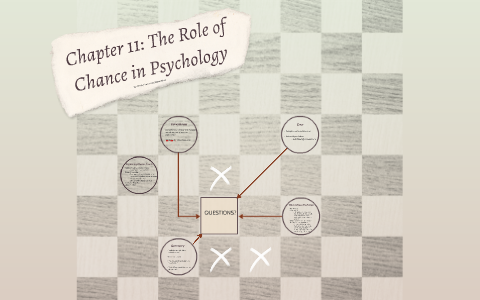Game Of Chance Examples
For example, in roulette the croupier spins the wheel, releases the ball, and exchanges chips and money for players but the players are simply betting on the most likely outcome of the croupier’s interaction with the roulette wheel and ball. Times, Sunday Times (2011) Monopoly, it seems, is not the only game of chance. Times, Sunday Times (2007) And yet football is at heart also a game of chance. Times, Sunday Times (2009) Jackpots don't come without gambles, and farming is a game of chance. Times, Sunday Times (2017).

An example of a carnival game of chance is the 'Dime Pitch' game. The objective is to toss a coin (typically a dime or quarter) onto a horizontal board that has random marks on it. The marks on the board are the same diameter as the coin thrown. By completely covering. Games of chance vs. When it comes to gambling there have always been several different controversies. One of the biggest one has been whether a particular game is a game of skill or chance and why a few games are considered to be legal while the others are not permitted by the law. Games of chance have an older history than those based on skill because they’re easy to implement and to play. For example, animal bones have been used in games of chance since 3600 BC, while the six-sided dice dates back to 2000 BC. Dice are still used today and are.
Fun Games Of Chance
Printer-friendly versionMany nonprofits use games of chance and auctions as fundraising vehicles – without realizing that “legalized games of chance” are regulated activities, and indeed illegal in many states. So that poker night or silent auction that created such a buzz…make sure that the buzz is not the vibration of your cell phone letting you know that your nonprofit is being cited for criminal penalties. Even an auctions that is raising money for a charitable cause, can result in unintended consequences for donors and charitable nonprofits alike, unless you know and follow the rules. From fantasy leagues to casino nights, nonprofits and games of chance are a misunderstood minefield.
Games Of Chance Examples
Know the rules
Your state may, or may not, permit charitable nonprofits to conduct raffles, Bingo, auctions, and other games of chance. If it does, it is likely your nonprofit will need to apply for a license from the state beforehand. The IRS regulates games of chance too, as well as the taxable income that is earned by victorious game-players. Here are some of the issues that games of chance raise for charitable nonprofits:
Easy Games Of Chance
- Income from games of chance may be considered unrelated business income and therefore the charitable nonprofit may owe tax on the income, and winners may owe tax that the nonprofit is required to withhold.
- The IRS has special rules for bingo.
- Read the IRS notice about reporting requirements and income withholding for raffle prizes
- In some states, proceeds from games of chance have to be kept in a special bank account (e.g., Pennsylvania).
- Games of chance might trigger the requirement to conduct criminal background checks on the CEO or other staff of the nonprofit that is hosting the games.
- State or federal law may require the nonprofit to maintain special records and file certain reports about the games/winners.
- The nonprofit may be subject to gaming excise taxes (described in IRS Publication 3079).
- A nonprofit hosting an event such as a charity casino night, where alcohol is served, may need a separate alcohol license.
- How the nonprofit uses net proceeds from games of chance may be limited in some way. For example, in North Carolina the law states: “None of the net proceeds of the raffle may be used to pay any person to conduct the raffle, or to rent a building where the tickets are received or sold or the drawing is conducted.”
What can donors deduct?
Surprise: Nothing! Donors who are successful bidders at an auction or winners at a game of chance, often think that the money they spent in pursuit of their winnings is deductible just because the event is hosted by a charitable nonprofit, or the earnings are advertised as supporting a charitable cause. In fact, the winners of games of chance are not able to deduct what they spent to play the game, or bid at the auction.
Game Of Chance Ideas
- Auction donors may be surprised to learn – after the fact – that their “contributions” are not deductible. The reason is that in a silent or live auction their contribution is actually a payment for donated goods or a donated experience such as an all-expenses paid trip to Bermuda. Consequently, they did not provide the charity with a contribution in excess of the fair market value of what they received. Instead they engaged in a transaction to purchase an experience or goods. In the case of other types of games of chance, the person who plays the game is expecting (hoping) to win something in return, so the money exchanged is considered just like a purchase or sale of goods, rather than a voluntary gift to the charitable nonprofit with no expectation of receiving anything tangible in return.
Resources
- Tax-Exempt Organizations and Gaming (IRS Publication 3079)
- Exempt organizations and raffle prizes (IRS)
- IRS Phone Forum transcript: Federal tax and and information return responsibilities for tax-exempt organizations that conduct gaming (IRS)
- Special IRS Gambling Rules for Nonprofits (Nolo)
- Is your nonprofit overpromising tax-deductions? (Nolo)
- Gambling with your nonprofit (Charity Lawyer)
- Your state association of nonprofits can provide guidance on what is permitted in your state, e.g. this guidance from the Minnesota Council of Nonprofits.